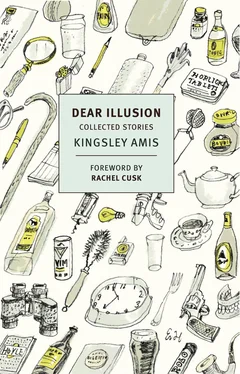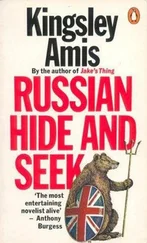Mention of Kipling leads me to wonder whether, if he were today to produce ‘Without Benefit of Clergy’ or another masterpiece from the book referred to, he would find its magazine publication as easy as he actually did in 1890. Then and for long afterwards, weeklies and monthlies entirely or largely devoted to new fiction, for the most part short stories, flourished in both Great Britain and the United States. Now, notoriously, a tale of any length has to fight for a place alongside political articles, interviews with film directors, cookery columns and soft porn. Just as notoriously a hardback or paperback collection usually does worse commercially than a novel by the same author. This last fact was once explained to me by a publisher (not one of mine) as reflecting readers’ dislike of having to acquaint themselves with a new set of characters a dozen times over in the course of the book, instead of getting shot of the trying task for good at the beginning. Can that be right? Have readers got worse? — after all, there are more of them. Or have short-story writers got worse? — after all, writers of everything else have. But then novels go on getting read, or at least bought. But then again, not in hardback very much. Perhaps the vestigial puritanism that breeds reluctance to fork out £11.95 on a mere (book-length) story breeds outright refusal when the merchandise is a lot of little stories. Perhaps.
My other possible partial explanation takes account of another fact, that of course the short story of the 1980s is to be seen not only among tits and bums, etc., but also in those pale and sickly present-day equivalents of the Victorian fiction magazines, the periodicals subsidized by the Arts Council or one of its offspring. A writer, or any other kind of artist, who partly or largely need not depend on pleasing the public, who in effect has his fee guaranteed whatever the quality of his product, is tempted to self-indulgence and laziness. You may maunder on at your own sweet will in prose or verse (or something called verse) and get your money regardless. But when it comes to a book and the public, a larger public, is invited to pay the full price, even that of a paperback, it jibs. It turns to a novel, which as yet is unlikely to contain any material subsidized by the Arts Council.
The above has at any rate the merit of heeding a third fact: when people decline to buy something, they usually do so because they see insufficient merit in what is on offer. And word gets round; I should guess that the term ‘short story’ has become a fully fledged consumer-deterrent in its own right, like ‘sensitive study’ in a different context. Short-story writers need another Kipling to restore their image. But Rudyard resurrected would have a plenitude of more urgent business on his hands.
In reprinting these pieces I have followed the policy of altering nothing material, merely supplying omissions and rectifying stylistic and factual erros. In particular, ‘Who or What Was It?’ retains its original form of radio script. Let me say here that the broadcast had an interesting and mildly appalling sequel. My intention had been to fool listeners into thinking it was a factual account until three-quarters of the way through and then, with luck, induce them to suspend their altogether necessary disbelief for the last few minutes. The detail about the cross was put in partly to make incredulity inescapable and final. For some, it missed its mark most grievously. An old friend, himself a novelist, the late Bruce Montgomery (‘Edmund Crispin’) telephoned to ask if the story was true; when I demanded to know how he could have thought that it could conceivably be true, he disarmingly shifted his ground by saying he wondered if I had had a go of DTs. A television producer telephoned to suggest using it for one of a new series of programmes on the supernatural. I asked how it was proposed to set about this. ‘Well,’ came the reply, ‘I thought we might start by taking the cameras along to the pub.’ I said, ‘Pub! What pub?’ and there was a great silence.
The funniest and most frightening of these cases was a letter from something calling itself the Religious Experience Research Unit at Manchester College, Oxford, director Sir Alister Hardy, FRS. The writer, who was not Sir Alister, said that he and his colleagues were collecting examples of outlandish coincidences and the like, asked for further details of my ‘experience’, and added that so far nobody known to him had come across ‘such a striking and remarkable nexus of events as you describe’. I hope not. There was another good bit about my having been (on one view of the matter) in two places at once; that was comparatively straightforward, the man said, an obvious case of ‘bi-location’. You could not wish for a finer example of the popular habit of thinking that giving something a Latin name goes a fair part of the way towards explaining it. ‘Mummy, there’s a monk floating in the air — how does he do it?’ ‘It’s called levitation, dear.’ ‘Oh, I see.’
I was tempted to string this fellow along, but compassion or laziness intervened. Eventually, I believe, the Religious Experience Research Unit or its scribes published a compendium of striking and remarkable nexuses of events. If I have the right book in mind, it received a great deal of respectful attention. In one way, this is not at all surprising. All sorts of people are uncomfortable in a universe where there seems to be nothing supernatural, nothing beyond this life, no undiscovered forces, no God. I sympathize; I find it none too cosy myself; but I do wish there were a little less eager, cruising credulity about. I wish too, quite vainly, that such people, other people too, would face a little more squarely what is entailed by believing, or believing in, something.
Science-fiction fans among many will remember how, one night in 1938, Orson Welles put out an adaptation of his near-namesake’s War of the Worlds over a New York radio station. It was cleverly done as a succession of supposed news broadcasts and, near the end, supposedly genuine commentators described the invaders from Mars horrifically battering their way into the city. According to the story, thousands of listeners panicked, fled along the streets, besieged bus terminals, drove off into the countryside. This showed credulity all right, stupidity too — ‘news’ of that sort would not be going out on just one channel, etc. But it also showed a certain consistency. If, for whatever inadequate reason, you really believe the Martians are coming, then you are behaving logically and appropriately by trying to run away, you are following out the consequences of your belief.
Nobody, as far as I know, panicked or drove to Cornwall as a result of my broadcast. But those who said they thought the story was true, or might be true, responded illogically and inappropriately. Consider: if you saw a man restoring to life another clinically certified as dead beyond the possibility of error (and that would be less extraordinary than what I described over the air), the appropriate response would surely not be, ‘How very interesting. I might telephone that chap in a day or two and see if I can find out a bit more about it.’ No; if you telephoned anyone it would be the Archbishop of Canterbury, you would fly to the Vatican, approach the worker of the miracle and say, ‘Master, I will sell all that I have and follow you.’ Those reactions to my broadcast constitute one more small piece of evidence that, when it comes to any debatable question of this sort, from the existence of ghosts to the value of palmistry, the line between belief and disbelief is becoming blurred. Is astrology true or false? Many would say that there was something in it, many more than take the slightest practical notice of its advice. Do you believe the flat-Earth theory? Yes and no. That way madness lies.
Читать дальше












